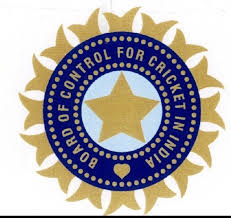While Justice Dipak Misra led the Supreme Court bench that confirmed the death sentence of four convicts in the Delhi gangrape case, he was also part of the bench that ordered the playing of National Anthem at the start of movies in theatres. His career has been beset with cases that have had a far-reaching effect on society.
Now Justice Misra, the senior most judge of the Supreme Court, is set to take charge as the 45th Chief Justice of India. He will succeed incumbent Justice JS Khehar.
Justice Misra will have a tenure of 13 months as the CJI after he takes over on 28 August. He has practised in constitutional, civil, criminal, revenue, service and sales tax matters in the Orissa High Court and Tribunals before being elevated to the High Court bench. He got enrolled as an advocate in 1977.
He was appointed Additional Judge of the Orissa High Court in January 1996, after which he was transferred to the Madhya Pradesh High Court in March 1997.
In 2009, Justice Misra became the Chief Justice of the Patna High Court and assumed charge as the Chief Justice of the Delhi High Court in May 2010.
He was appointed a judge of the Supreme Court of India on 10 October, 2011.
Justice Misra has often been described as a “pro-citizen judge” because of his judgment in Court on its own motion vs State wherein he held that FIRs should be uploaded on the Delhi Police website within twenty-four hours of their lodging so that the accused can download the same and file appropriate applications before the Court for redressal of their grievances.
He has also presided over several key cases in the past and is at present, hearing a slew of important cases, including the BCCI case for transparency in Indian cricket administration and the SEBI-Sahara spat, according to a The Hindu report. He is also heading the bench hearing the right of women to access the Sabarimala temple in Kerala.
Justice Misra headed the bench which, in an unprecedented pre-dawn hearing in 2015, rejected last-ditch efforts by Yakub Memon to get his execution stayed. According to an NDTV report, it was Justice Misra who had announced the court’s decision. He said, “Stay of death warrant would be a travesty of justice. The plea is dismissed.”
He also headed a three-judge bench which upheld the Delhi High Court’s verdict sentencing to death the four convicts of the 16 December gangrape-cum-murder case of Delhi. The “brutal, barbaric and diabolic nature” of the crime could create a “tsunami of shock” to destroy a civilised society, the verdict, penned by Justice Misra, had said.
He headed the apex court bench which upheld the Constitutional validity of 156-year-old penal laws on defamation, holding that the “reputation of one cannot be allowed to be crucified at the altar of the other’s right of free speech”.
In an order, hailed by nationalist organisations, Justice Misra mandated the playing of the National Anthem before the screening of films in cinema halls. He was also a part of the bench of the Supreme Court’s seven judges who convicted then Calcutta High Court judge Justice CS Karnan for contempt of court.
Justice Misra is a fan of jargon, often using lofty words and “overblown vocabulary”, as The Wire points out.
Nevertheless, the biggest challenge for him is to deliver a judgment in the Ram Mandir and Babri Masjid case. A special bench led by him is scheduled to hear the long pending dispute on 11 August.
Notably, after Justice Khehar announced his decision to recommend Justice Misra as his successor, Adish C Aggarwala, president of the International Council of Jurists, had argued that his appointment as the next CJI would “severely compromise the independence of the judiciary.” This was in relation to long pending allegations that Justice Misra had acquired public land intended for the landless poor by submitting a false affidavit, The Wire reported.
However, noted lawyer Prashant Bhushan said that although the charge against Justice Misra is serious, it would be difficult to do anything about it in view of the fact that it is quite old.





Be the first to comment on "Dipak Misra appointed as next CJI: The ‘pro-citizen’ judge behind Yakub Memon, Delhi gang rape judgments"